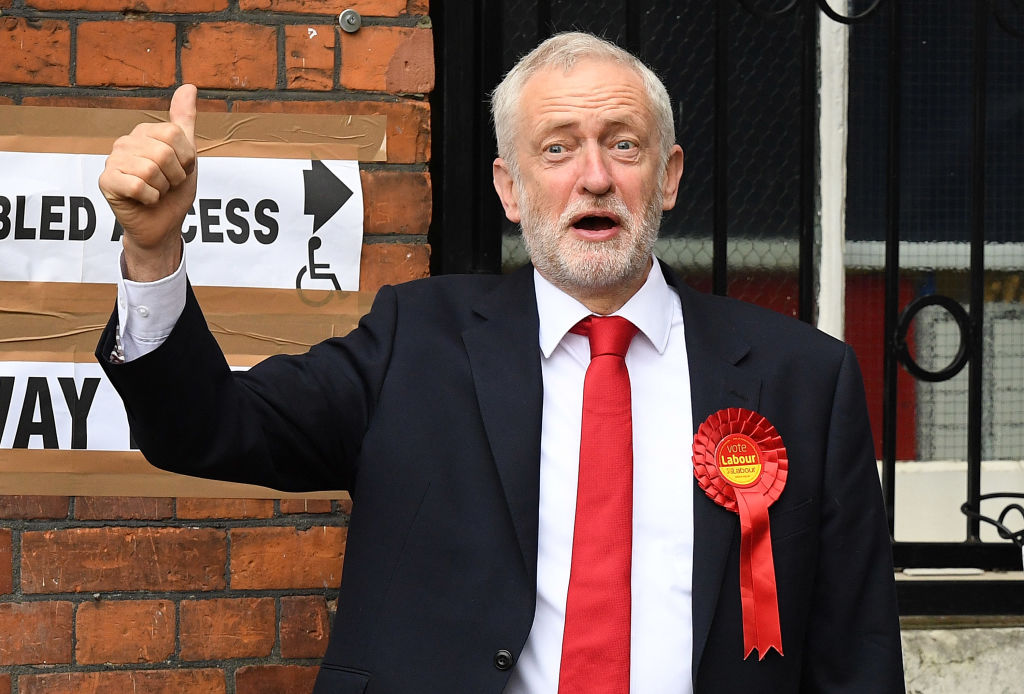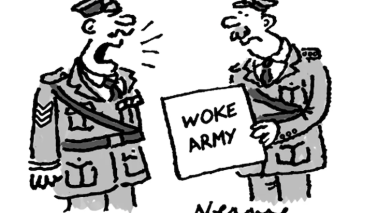The Tories are in for a torrid time in today’s local elections if the polls are anything to go on. Results are expected to be particularly bad for the party in the capital, with the Conservatives trailing Labour by 22 points in London, according to YouGov. But can the polls be trusted? Or could Tory gains in the Midlands undermine Labour’s success in the south? Here are the key battlegrounds to watch overnight:
1am:
Basildon:
Ukip was the only party to make gains in Basildon in 2016; two years on, their prospects are rather bleaker. The Tories – who have 19 seats on the council – will be hoping to snatch away some of the ten seats Ukip are defending in order to take back overall control of the council. But if those ‘Kipper votes go Labour’s way, Corbyn’s party could win control for the first time in 18 years, potentially kick-starting a gloomy local election showing for the Tories.
2am:
Trafford:
Tory-held Trafford, where a third of councillors are up for re-election and where Jeremy Corbyn launched the party’s local election campaign, is another target for Labour. The Conservatives have managed to cling on here since 2004, meaning that a Labour win would be a big coup for the party. Labour last took control here in 1996, a year before Tony Blair’s landslide victory. So could a victory in Trafford be a sign of things to come for Corbyn’s party?
Peterborough:
The Conservatives are just short of a majority in Peterborough, having lost control in a council by-election held during last year’s snap general election. A year on, the Tories will be hoping to regain control, yet doing so won’t necessarily be easy. Peterborough, where Ukip is standing candidates in all but one of the city’s wards, is one place where the ailing party is determined not to give up without a fight.
Worcester
A third of council seats are up for grabs in Worcester, where Labour and the Tories are in a head-to-head battle for control. Labour haven’t been in charge of the council since 2000. But with the Tories losing their majority here last year, Worcester is now a key target for the Labour party. It’ll be a big boost for Corbyn if they succeed here.
2.30am
Westminster
Labour has never won in Westminster, with Tory control of the council dating back to its inception more than fifty years ago. This year, though, there has been much speculation this could be the moment Labour finally snatches away a Conservative stronghold. Labour will need to overturn the Tories’ current majority of 30 in the borough if they are to do so. This is a big ask, and it seems more likely that Corbyn’s party will succeed in winning a number of wards rather than wresting overall control. If they do pull it off though, it’ll spell disaster for the Tories in the capital and be a big symbolic defeat for the party. This could be the moment London turns red.

Could Jeremy Corbyn’s party pull off a surprise win in Westminster?
3am:
Plymouth
A series of Ukip defections last year narrowly granted the Tories control of Plymouth’s council. But with the Conservatives defending 12 seats and Labour only seven on May 3rd, the Plymouth local election is for the Tories to lose. This is a major target for the Labour party, particularly given their success in taking a Plymouth seat from the Tories at last year’s snap election. Plymouth’s reputation as an electoral ‘swing city’ would also make a Labour win here another ominous sign for the Tories in any future general election.
Wandsworth:
Another major target for the Labour party in the capital, Wandsworth has been held by the Tories since 1978, but in the years before then the council alternated between the Conservatives and Labour. This time around, with every one of the borough’s councillors up for re-election, Labour will be looking to up the gains they made in 2014, when they snatched seven seats from the Tories. Can Labour win? They’ll need a big turnout to overturn the Tories’ 18-strong majority here.
Dudley:
Theresa May’s campaigning stop in Dudley last week was no accident; this Midlands council is a key target for the Tories. Labour lost control in Dudley in 2016, in an election in which the Tories upped their number of councillors to 28 (compared to Labour’s 35). If the Tories can win the five out of six Ukip seats up for re-election, they stand a chance of consolidating their 2017 gains in the Midlands.

Theresa May on a recent campaigning visit in Dudley
3.30am:
Cheltenham
A Lib Dem stronghold since 2010, the elections in Cheltenham are a test of the party’s leadership under Vince Cable. In 2016, the party upped its majority at the Tories’ expense. It’s likely the Lib Dems will win again. But if they don’t, it will spell very bad news for Cable.

A disappointing Lib Dem showing could spell trouble for Vince Cable
4am:
Portsmouth
Labour enjoyed a brief spell in charge of the city’s council here in the 1990s, but since then support for the party – which currently has only two councillors in Portsmouth – has dwindled. 14 seats are up for grabs on Thursday, meaning there is a good chance for Labour – which took the Portsmouth South seat at the snap election – to make further inroads here.
Barnet:
Has Labour’s anti-Semitism scandal damaged the party? Barnet will offer an answer. One in seven residents here are Jewish – the highest number of any local government area in Britain. And with the Labour party only one seat behind the Tories, who have 31 councillors, they will be relying on the Jewish vote to help them win Barnet. But will they really turn out for Corbyn’s party?
5am:
Sutton:
This Lib Dem stronghold in the capital has been held by the party comfortably for almost thirty years, and the party enjoys a big majority in Sutton, with its 43 councillors to the Tories’ eight. And the Lib Dems will be eager for a healthy performance again here. If they fail to meet these expectations – or even lose Sutton – Lib Dem supporters might well start asking themselves: what is the point of Vince Cable?
1pm:
Great Yarmouth
The big question in Great Yarmouth is: where will the Ukip vote go? In 2016, Labour lost four seats to the ‘Kippers. Ukip’s woes, not least the debacle of Henry Bolton’s doomed leadership of the party, mean that their vote share is expected to nosedive this time around. But will it be the Tories or Labour who can capitalise on the party’s miseries here? If it’s the latter, it’ll be a blow for Tory party chairman, and local MP, Brandon Lewis.

Who will benefit from Ukip’s falling vote share?
4pm:
Newcastle-under-Lyme
Labour had a close call in Newcastle-under-Lyme during the snap election, with the Tories just 30 votes short of snatching it away. In the run-up to the local elections, Labour’s 27 seats to the Tories’ 21 gives them a majority, if not overall control of the council. But this year’s contest will be the first time that every councillor will be up for re-election in Newcastle-under-Lyme (the council had previously been voted in in thirds). Tory success here will show that the party has been able to consolidate its relative success in the Midlands: a good sign for the government – and a worrying one for Jeremy Corbyn.
Harrogate: Vince Cable launched the Lib Dem local election campaign in Harrogate and has heaped pressure on himself by saying he is confident ‘of making significant gains’ in the spa town. Will he deliver? 5pm: Kingston-upon-Thames: The Tories managed to take control of Kingston-upon-Thames from the Lib Dems in 2014. Their prospects this time around look gloomier, though, and Vince Cable will be aiming to capitalise on this by building on Lib Dem success at the snap election.6pm:
South Lakeland:
Then-Lib Dem leader Tim Farron’s majority was slashed dramatically from 9,000 to 780 at the snap election in his Lakeland constituency. Whether that was because voters were fed up with Farron talking about gay sex or indicative of broader problems for the Lib Dems is hard to say, but today’s result should give us a better idea. The party will be desperate to maintain control of this stronghold.

Ex-Lib Dem leader, Tim Farron







Comments